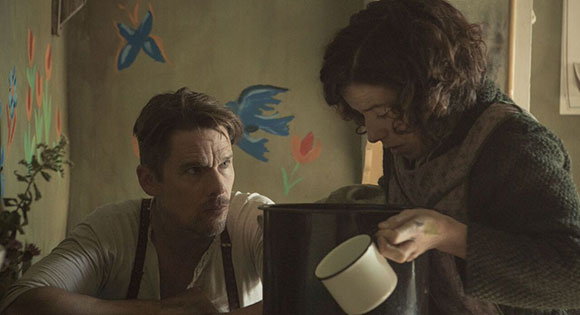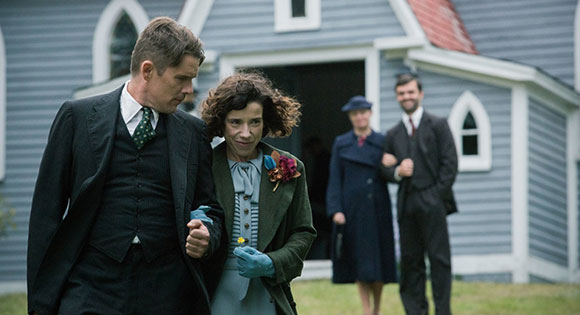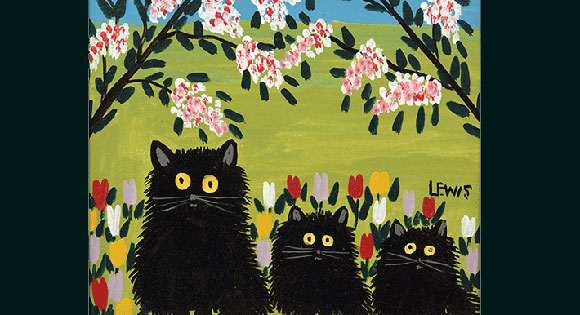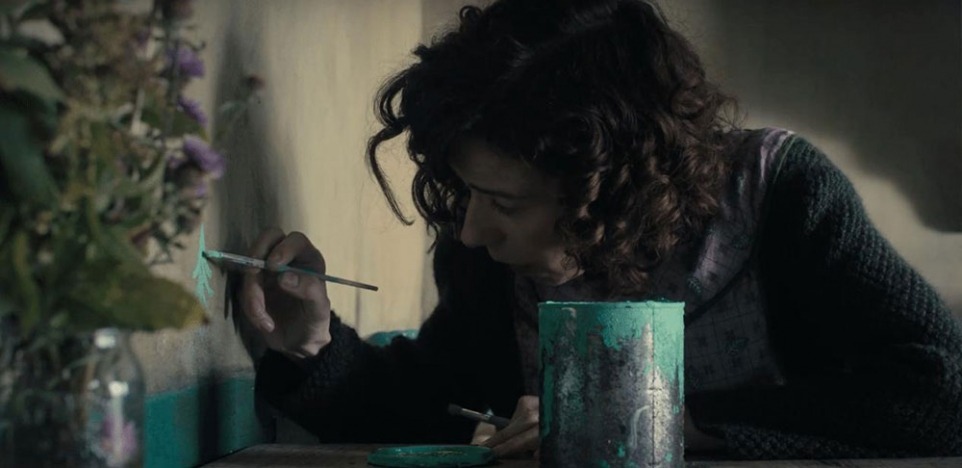Maud (Sally Hawkins) lives with her bossy and judgmental Aunt Ida (Gabrielle Rose) in the seacoast town of Digby in Nova Scotia. Crippled by rheumatoid arthritis, bent over, and bullied for her physical deformities, she is taken aback when her brother Charles (Zachary Bennett) arrives with news that he has sold their family home. She protests by saying, "I'll look after it," and he responds, "You can't even look after yourself."
Maud uses this setback to boldly embark on a new life. She takes a job as a live-in housekeeper for Everett Lewis (Ethan Hawke), a cranky, oftentimes cruel, and violent fish peddler. He lives in a small house on the edge of town and is known as an eccentric and loner. At first, he is unhappy with her presence, constantly criticizing her cooking and cleaning, and even hitting her out of frustration.

She responds by expressing herself creatively. She begins to decorate the walls, doors, and windows of his home with her bright and childlike paintings of birds, blooming flowers, perky cats, and landscapes. This life is enough for her. She explains that just by looking out the window, she can see "the whole of life already framed."

Eventually, Maud convinces the mellowing Everett to marry her and they forge a partnership where she paints and he sells her enchanting postcards and paintings. This self-taught artist patiently works at her craft and eventually is rewarded when President Richard Nixon purchases a painting from her and suddenly the media covers her life and work. One of Maud's first patrons is Sandra (Kari Matchett), a neighbor who visits town but lives in New York. She enthusiastically supports her simple and elegant creations. The real-life Maud Lewis became one of Canada's most famous folk artists.

Aisling Walsh directs Maudie from a screenplay by Sherry White. This is one of the year's most quaint and moving stories. We are charmed as we watch two social outcasts inch their way toward a tender and touching business and personal relationship. Sally Hawkins, who has given a handful of poignant and praiseworthy performances in Happy-Go-Lucky, Made in Dagenham, and Blue Jasmine, delivers an Academy Award caliber performance as this resilient folk artist who lived in poverty, was treated shamefully by her brother and aunt, learned to love and be loved, and found deep joy in the world she saw unfolding from her miniscule perch.
